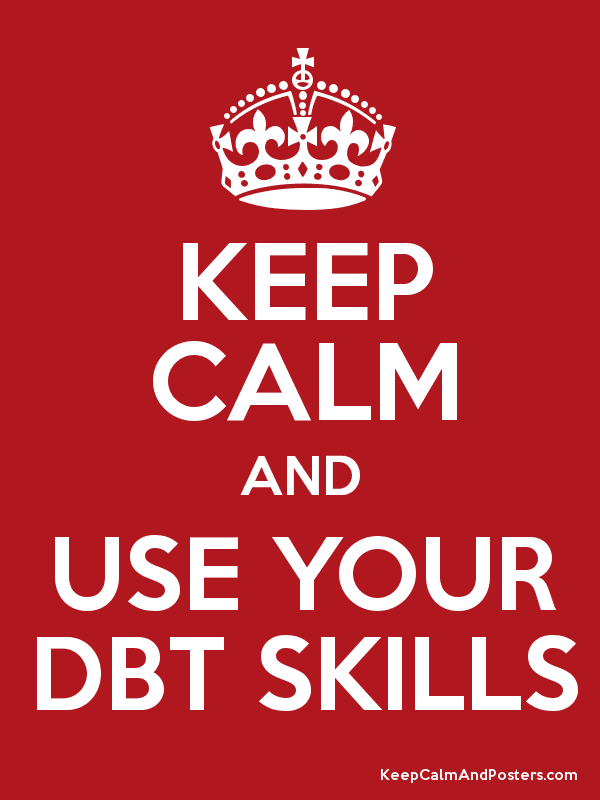|
The relational approach is hot in the therapy world at the moment, but what does it actually mean, and why would those who are not mental health professionals want to know about it? This series of posts will discuss how we do or don’t think relationally about some common mental health issues, and what the implications of this might be.
First we’ll look at one of the most common mental health issues, depression. This is a significant issue in New Zealand, as probably most of us know due to series of education campaigns and some very useful efforts to reduce stigma. Often, however, campaigns to de-stigmatize mental health issues cast those issues in a medical light, presumably because we tend to feel little shame over other medical issues such as a broken leg or a heart condition. When taken to the extreme, this can lead to thinking that equates depression with chemical imbalances in the brain that are really only the responsibility of our doctor to deal with. Just like I wouldn’t advise a neurosurgeon on how to operate on me, coming from this perspective, I might sit back and wait for the medication prescribed by the expert to do its work on my depression. I’m not advising anyone against anti-depressants, but I am suggesting that there’s more to the picture of depression than this. Two subtypes of depression involve relationships of abandonment/grief, and of intense self-criticism. If I am suffering the first subtype, that of abandonment, I may be experienced in relationship as very difficult to reach and connect with, and my (sometimes unconscious) expectation of others is that they will readily abandon me. Others, whether recently or in my childhood may actually have abandoned me. Furthermore, I may now act in ways that sustain this pattern, by for instance, retreating from others into a depressive isolation. From this relational perspective, my depression isn’t only a chemical imbalance in the brain, it is a state of sustained and often unacknowledged grief, loss, and appropriately to this, sadness. If I'm depressed and doing therapy from this perspective, therapy isn’t just about kickstarting my brain's chemistry, but about helping me to grieve, and bringing me back into relationship – often starting with a relationship with a warm, reliable, and empathic therapist. If I am suffering from the second subtype, that of self criticism, it may be extremely painful for others to witness just how much I disappoint myself. Though others may accept me, and I may even long to accept myself in the same way, it is as if an invisible wall exists to stop any of this acceptance easing my pain. A criticising relationship with myself has been internalised. In order for me to break with my loyalty to this self-criticism, in therapy I may need to explore with my therapist where it came from. What were the earlier relationships in my life in which I was criticised or invalidated, and was this criticism valid? Were the standards or the purposes of this earlier criticism compassionate and guiding, or punishing and unrealistic? In a nutshell, that’s my brief introduction to a different, more relational, and hopefully more human way of viewing depression. Please let me know in e-mail or comments what you think about this. Check in again soon for the next post in this series: a relational approach to borderline personality disorder. Post by Michael Apathy at Lucid Psychotherapy and Counselling.
0 Comments
A Relational Approach to Psychotherapy and Counselling for Borderline Personality Disorder26/2/2015 This is the second in a series of posts about relational therapeutic approaches to mental health issues. You may find it helpful to get background to this by reading the last post, on a relational approach to depression.
Borderline personality disorder, like depression, has in the past often been medicalised, objectified, or managed. I’ll attempt to give a brief no-jargon sense of a different, more relational way of working with people whose symptoms fit this diagnosis. People with this diagnosis are known for having intense, chaotic, and often destructive relationships. Relational therapy with people with this diagnosis is an attempt by both client and therapist to build what may be the client’s first experience of a stable, healthy, and boundaried relationship. This involves both therapist and client acknowledging and working through the inevitable challenges of staying in relationship with each other. These challenges include the disappointments, the injuries, the wounds, and the traumas both large and small that are often the reflections of the hurts and inadequacies of earlier relationships. This is big work - connecting with someone consistently over the long term in a real and honest way. Once we've developed the capacity to do this with a therapist, then we're much more likely to be able to do this in our other relationships, and we probably will no longer fit the diagnostic criteria for borderline personality disorder. Realistically, enough attending to relationships has to happen in any successful therapy with people with this diagnosis. My experience is that the more openly and consciously relationship issues (including the therapist and clients, as real fallible humans) are addressed, the better. This doesn’t exclude other approaches, such as practising DBT distress tolerance skills to get through crisis. Please let me know in e-mail or comments what you think about this. Check in again soon for the next post in this series: a relational approach to anxiety. Appointments with Lucid Psychotherapy are now available on Wednesday mornings at Doctors on Cashel, 7 Cashel Street, Christchurch. Now is a great time to book, before this clinic fills up. As usual we are available to work with people facing a wide range of challenges (see "Get help with..." off the home space on the navigation bar at the top page of the website), but in particular we're interested in getting participants to start a DBT skills group. We'll post more about the skills groups shortly, but for the moment, if you're interested in this, read more here. DBT is a form of therapy known for helping people who have not found other forms of therapy to be sufficient.
DBT stands for Dialectical Behaviour Therapy. It is a not very illuminating name for a deeply practical and effective form of therapy. DBT was developed to help those that other forms of therapy have failed to help. It is increasingly researched and shown to be effective with a wide range of issues (including eating disorders and addictions), but in particular has been shown to be effective with people who are highly emotional, and may hurt themselves. Some of these people may have received a diagnosis of borderline personality disorder.
Psychologists, Counsellors, and Psychotherapists have been doing DBT with clients in Christchurch on a one to one basis. That's good, but the full DBT treatment also involves attending a DBT skills group. This is an opportunity learn and practice the DBT skills with other people. We're starting a small DBT skills group, and expect places to fill up quick. Get in touch to find out more and avoid being on a waiting list.  Doing sex therapy, either individually, or as a couple, often involves looking deeper into the meanings that we may give sex, without even realising it. Here is a partial list of some of the meanings that people give to sex: love, lust, enjoyment, stimulation, connection, comfort, duty, conquest, competition, validation, entertainment, work, distraction, relaxation, attention, security, reproduction, reward, and affection. This partial list can give you a little bit of a sense of how complex sex can be. We rarely directly discuss the changing multiple different meanings each partner can hold around sex, and how these meanings and needs might best be fulfilled. Sex therapists are trained to help you to talk about these sensitive and personal topics in a way that is likely to get things unstuck in the bedroom, and out of it. |
AuthorsMichael Apathy and Selina Clare are practitioners of psychotherapy at Lucid who are excited about fresh, innovative, and effective therapy for individual and environmental change. Categories
All
Archives
December 2016
|
Specialty Areas |
Online BookingBook my first session.
If there are no bookable services showing via the online booking website, this means we currently have a waiting list for new clients. Please give us a call or email if you would like to add your name to it. |


 RSS Feed
RSS Feed